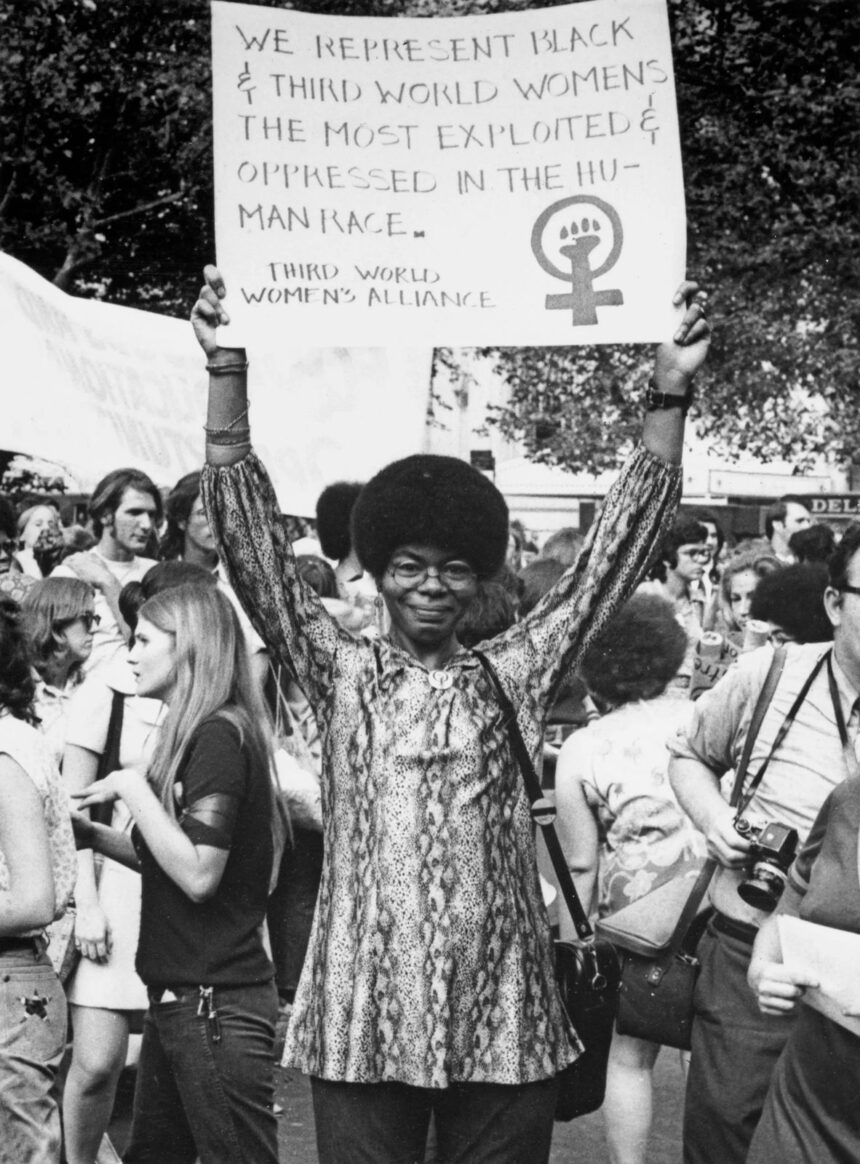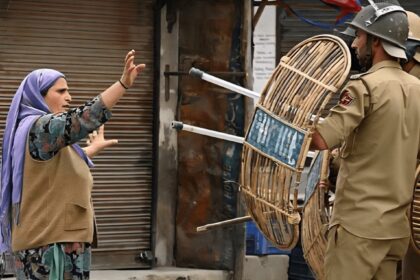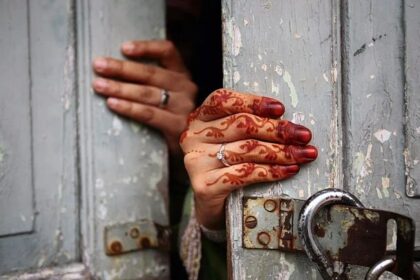“I come as one, but I stand as ten thousand.”
— Maya Angelou
In the quiet of a late evening, I imagine my grandmother at my age—perhaps already a mother of three, her life shaped more by duty than desire. I, meanwhile, sit at my desk, surrounded by books and unfinished drafts, chasing degrees and dreams. The distance between our lives isn’t just time—it’s silence, sacrifice, and the sharp ache of dreams deferred.
In Pakistan, generational differences among women are more than cultural shifts. They are emotional battlegrounds. Our mothers and grandmothers carried their womanhood in quiet compliance. We, the daughters of their resilience, are now learning to name our wants—but not without cost. The struggle lies not only in finding our voices but in being heard by those who never were.
The Cost of Silence
My mother wanted to study psychology. She still speaks of it with a soft, faraway voice. But marriage came early, and the consequent choices were not hers to make. Her life became a carefully choreographed act of balancing expectations, putting everyone’s needs before her own. Like many women of her generation, she was taught that love meant endurance and silence was strength.
There is an entire generation of Pakistani women who were never asked what they wanted. Their worth was measured by how well they adapted to others’ needs—how quietly they endured. They raised children while burying versions of themselves, rarely allowed the space to grieve what they lost.
Today, when daughters make choices—delaying marriage, choosing therapy, saying no—it is often met with confusion or pain. Not always because our mothers disagree, but because our freedom mirrors everything they never had. And that reflection can hurt.
Generational Trauma: An Inheritance of Silence
Psychologists refer to this as intergenerational trauma—the passing down of unhealed pain, beliefs, and emotional responses. Dr. Asha Bedar, a clinical psychologist in Pakistan, writes that “many women in our society have internalized the belief that emotional needs are selfish” because their own were never acknowledged (Bedar, 2021).
Our mothers were taught to suppress—to be strong in the face of emotional neglect. But suppressed pain doesn’t disappear; it simmers, shaping the way they love, the way they parent, and the way they react when their daughters dare to break the cycle.
A daughter setting boundaries may be seen as “disrespectful.” A girl who seeks mental health support may be dismissed as “too sensitive.” These are not just cultural gaps—they are trauma responses. Unseen mothers often expect unseen daughters.
The Collision of Freedom and Fear
This emotional inheritance creates a painful irony: women who once longed to be free sometimes become the ones who restrict freedom. A mother who couldn’t speak up may struggle to understand a daughter who refuses to stay silent. Her concern may come cloaked in control. Her care may feel like criticism. And the daughter, though free in theory, is still tethered by guilt.
We carry their hurt, but we also carry the weight of being the first to unlearn it.
The Quiet Weight of Freedom
For daughters, the struggle isn’t only about claiming freedom—it’s about surviving the loneliness that often comes with it. We may have the right to say no, to choose our work, to live on our terms—but each decision comes with a weight our mothers didn’t prepare us for.
A woman who chooses not to marry early is asked why she’s wasting time. A girl who leaves a toxic home is seen as ungrateful. Those who speak openly about mental health are told they’re too sensitive, too westernized, or too much. Even in progress, we feel fragmented—caught between ancestral expectations and modern ideals, between our mothers’ sacrifices and our own becoming.
Freedom, for many daughters, is not a celebration—it’s a quiet, daily negotiation with guilt. It’s walking into rooms full of people you love, knowing they do not understand you. It’s chasing healing while still flinching when someone says, “You’ve changed.”
There are days when we wonder if it would have been easier to just comply. To shrink ourselves into something more acceptable. But then we remember—we are not just living for ourselves. We are living for the women who never had the chance.
Strained Bonds and Shifting Roles
These differences often strain relationships. In many Pakistani homes, love is expressed through actions, not words. Emotional needs go unspoken. There is no language for apology, no space for vulnerability. A daughter confronting her mother about emotional neglect may be met with, “We did everything for you.” And it’s true—they did. But they didn’t know how to offer what they never received.
This is not about blame. It is about recognition. Healing cannot happen until we name what was lost.
Between Legacy and Liberation
Our grandmothers grew up in an era where a woman’s worth was tightly bound to her ability to be a good wife and mother. Education, if pursued, was a luxury. Independence was often frowned upon. A ‘decent girl’ was one who didn’t raise her voice, didn’t question too much, and certainly didn’t dream too loudly.
Our mothers lived on the fault line of change. Many of them studied, some worked, but most still bore the brunt of societal expectations. They were raised to obey and taught to endure, even as they witnessed glimpses of another kind of life—through books, through television, and through the rare woman who broke the mold.
And now, there’s us. Women who are studying law, writing poetry, running startups, choosing therapy over silence, and often saying no when no one expects them to. We are encouraged to dream—but still expected to marry. We are told to be independent—but not too much.
Change is happening—but it is jagged, not linear. While Aurat Marches, social media activism, and rising literacy rates reflect new expressions of womanhood, they also reveal how unevenly progress is distributed. A girl in Lahore may be speaking at a university seminar on consent, while another in interior Sindh is being married at sixteen.
Progress is not a straight line—it’s a series of ruptures and reckonings. Every generation carries the burden of the last but also the responsibility to do better.
Conclusion: Between What Was and What Can Be
Perhaps healing lies not in insisting we are better than the ones before us, but in acknowledging that we are braver because they endured. Our mothers were not weak—they were unfree. And while we may have more choices, we still live in the echoes of their silence.
To be a woman in Pakistan today is to hold contradictions. To be loud while carrying the wounds of women who were silenced. To fight for change while craving the approval of those who don’t fully understand it. To set boundaries, and still grieve the pain they cause.
The work is not neat. But it is necessary.
Our grandmothers endured. Our mothers negotiated. We are naming.
And perhaps the next daughters will simply live—unapologetically, unburdened.
We are not just breaking cycles—we are learning to carry them differently.
With less shame. With more honesty. And maybe one day, with softness that doesn’t come at the cost of survival.

















👏 your article is a need. I’ve been going through similar guilt, similar burden, similar ilzaam, and after a while I stopped, I shrouded my version of my self, silenced it because it was causing too much pain, too much distance with my loved ones. It’s hard when your own mother does the blame game when she might have been experiencing similar stuff in her time. I really appreciate your view, its helping me sort out my own dilemma, understand her better, and forgive myself for wanting and being.